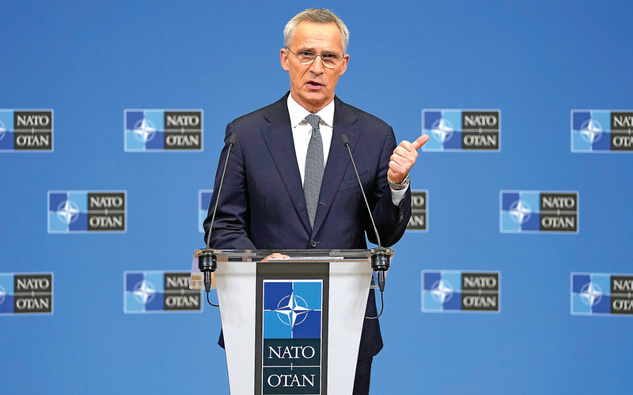Secretary-General Jens Stoltenberg holds a press conference on Monday at the NATO headquarters in Brussels (AP)
In our latest weekly review, I spoke with Poland’s TVP World on Tuesday about the status of Sweden’s bid to join NATO, and took apart hyperbole about the far right “taking over Europe”.
The other participant is Robert Pszczel, Senior Fellow at the Pulaski Foundation and a former NATO official.
Watch from 14:48:
I review the latest tactics by Turkish President Recep Tayyip Erdoğan, primarily for domestic politics, to delay Sweden as the 32nd NATO member — but explain how Stockholm is pursuing de facto cooperation with the bloc.
Later, I highlight the necessity of dealing with the issue of the far right on a case-by-case basis, avoiding the hyperbole of misleading headlines over events such as last week’s Dutch elections to turmoil in Ireland’s capital Dublin.
It is the nature of democratic systems that far-right parties will always try to get a foothold.
In some cases, such as Hungary, they have. But you also have to look at many other countries where the challenge of the far right has been met.
You start with the fundamentals. You deal with the economic and social problems. You try to maintain consensus and cohesion rather than division. And you do not let social media agitation poison your system.


Trackbacks/Pingbacks